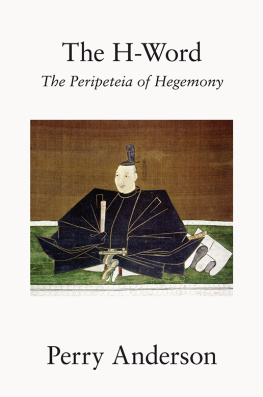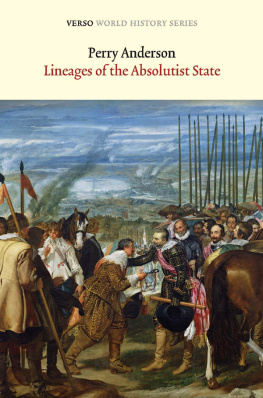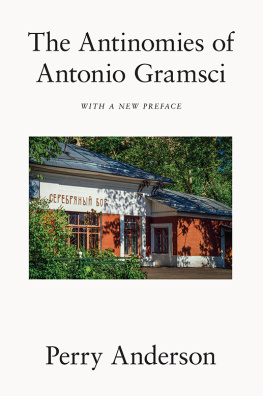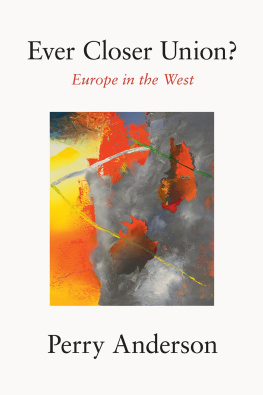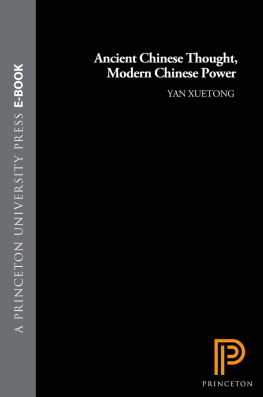Few terms of art are so conspicuous in contemporary political literature, technical or polemical, as hegemony. But its diffusion is quite recent, as a glance at the holdings of any good library immediately reveals. In the English language, the first entry in the UCLA catalogue goes back no further than 1961. Thereafter, tracking its title-use decade by decade, it appears in no more than five books in the sixties, sixteen books in the seventies, thirty-four books in the eighties, thenthe big jumpninety-eight books in the nineties. In the first decade and a half of this century, 161 such titles have been published: that is, one every month. The word has ceased to be either marginal or arcane.
What lies behind this alteration? The idea of hegemonylike modernity, or democracy, or legitimacy, or so many other political conceptshas a complicated history which belies its current wide adoption, and which needs to be understood if we are to grasp its relevance to the contemporary landscape around us. That history is one that extends across eight or nine distinct national cultures, and it will be necessary to say something about each of them. In considering the fortunes of the concept, the approach adopted here will in the first instance be an exercise in comparative historical philology. But the curvatures in its usagediffering applications, contrasted connotationshave never just been semantic shifts. They form a political barometer of changing powers and times across the centuries.
The study that follows appears together with another, The Antinomies of Antonio Gramsci, that looks in much greater detail at just one body of work centred on ideas of hegemony, if the most famous one, and the context in which it emerged. Readers approaching both must forgive a brief repetition here, in very compressed fashion, of what can be found in extended form there, an overlap intellectually unavoidable. The aims and methods of the two studies are not the same, even if they can be regarded as complementary. Their accents, the product of times that have little in common, differ more radically. But the one, written forty years ago, was a stimulus to the other, a connexion close enough for their publication as an asynchronous pair.
I owe the conception of this book to the Institut dtudes Avances of Nantes, where in working on a related project, a study of American foreign policy, its design first occurred to me. In composing it, I owe special thanks for guidance in the literature of two languages I cannot read, Chinese and Japanese, to the kindness of scholars who can: Andrew Barshay, Mary Elizabeth Berry, Joshua Fogel, Annick Horiuchi, Eric Hutton, Kato Tsuyoshi, Peter Kornicki, Jeroen Lamers, Mark Edward Lewis, Kate Wildman Nakai, Timon Screech, Wang Chaohua and Zhang Yongle. The originally appeared, in slightly longer form, in New Left Review 100, JulyAugust 2016.
October 2016
Historically, of course, the origins of the term hegemony are Greek, from a verb meaning to guide or to lead, going back to Homer. As an abstract noun, hgemonia first appears in Herodotus, to designate leadership of an alliance of city-states for a common military end, a position of honour accorded Sparta in resistance to the Persian invasion of Greece. It was tied to the idea of a league, whose members were in principle equal, raising one of their number to direct them all for a given purpose. From the outset it coexisted with another term indicating rule in a more general sensearkh. What were the relations between the two? In a famous passage of his History of Greece, discussing the evolution of the Delian League headed by fifth-century Athens, the eminent liberal historian Grotean associate of John Stuart Millargued that hgemonia was leadership freely based on attachment or consent, whereas arkh implied the superior authority and coercive dignity of empire, extracting by contrast mere acquiescence. Thucydides had carefully distinguished between the two, and criticised the passage of Athens from the first to the second as the fatal cause of the Peloponnesian War.
So stark an opposition was, however, foreign to contemporaries. In Herodotus and Xenophon, hgemonia and arkh are used all but interchangeably. Was Thucydides more punctilious? The paragraph on which Grote relied opens with the first term and ends with the second, tracing a development without counterposing them.
That there was a conceptual continuity, rather than any clear-cut contrast, between the ideas of hegemony and empire in classical Greece was rooted in the meanings of both. Written at the end of the Weimar Republic, the first scholarly study of the former, by Hans Schaefer, showed that hegemony was indeed leadership freely conceded by members of a league, but it was a specific commission, not a general authority. Granted was command on the battlefield.spectrum of power, arkh was constitutively ambiguous at the other, translatable according to context (or leaning of the translator) as neutral rule or dominative empire. In the rhetoric of the fifth century, associations of the first with consent and the second with coercion were tactically available, but the sliding surface between them precluded any stable demarcation.
In the fourth century, this changed. After defeat in the Peloponnesian War, Athenian oratory, no longer able to extol empire as before, revalued the virtues of hegemony, now suitably moralised as an ideal of the weakened. Isocrates, calling on Greeks to unite once more against Persia under the leadership of Athens, claimed hegemony for his city by exalting its cultural meritsthe benefits it had historically conferred on others, above all its blessings in philosophy, eloquence and education. His panegyric is the most systematic vindication of hegemony as a freely acknowledged preeminence to be found in the literature. But even it could not dispense with the telltale counterpoint of its other: Greeks should also be deeply grateful for the very great empire that Athens had enjoyed.
Looking back, Aristotle would write of Athens and Sparta that each of the two states that were hegemonic in Greece took their form of government as a standard and imposed it on other cities, in one case democracies and in the other oligarchies, paying no regard to the interest of the cities, but only to their own advantage, until it became a fixed habit with the people of the various cities not even to desire equality, but either to seek to rule or to endure subjection. Concluding that it is in the role of Hegemon that the real secret of the League to Corinth is to be found, he may have said more than he intended.

